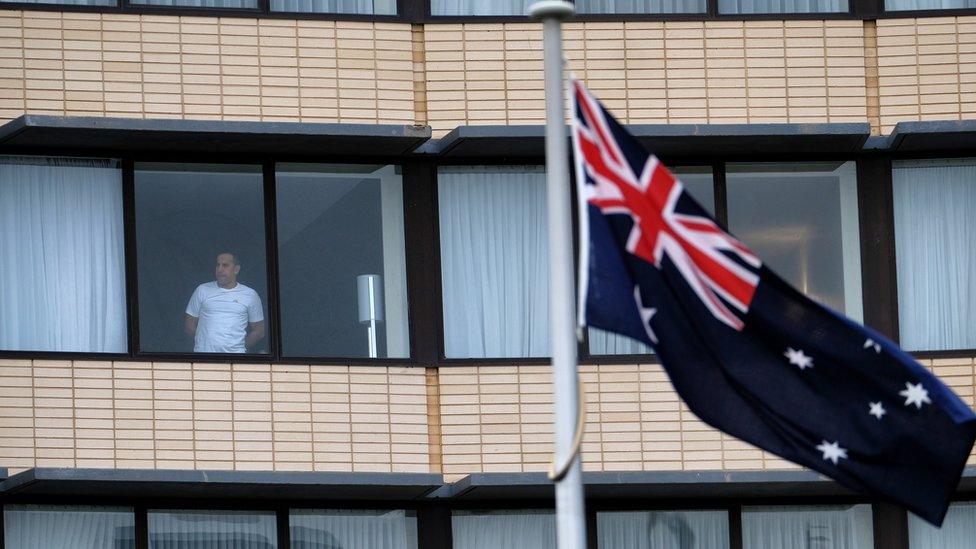Covid: Brisbane lockdown ends ahead of Easter weekend
- Published
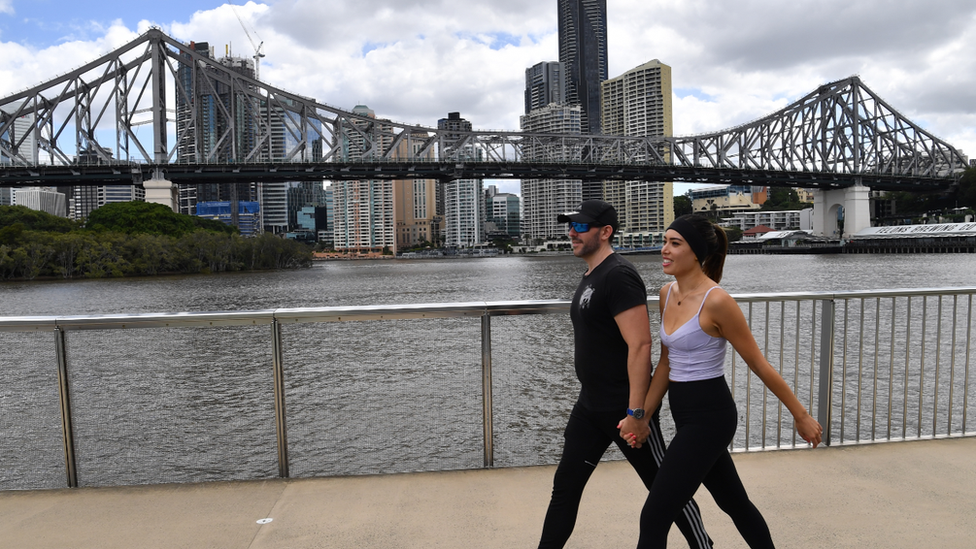
Brisbane's two million residents have been released from lockdown
The Australian city of Brisbane exited its snap three-day lockdown on Thursday after only one local Covid-19 case was reported in the previous day.
The outbreak in Queensland's capital - home to two million residents - has grown to 16 infections in total.
State Premier Annastacia Palaszczuk said the low number of new infections meant the lockdown could be lifted in time for the Easter holiday weekend.
Some restrictions will still apply including mask-wearing in indoor areas.
Gathering numbers are also limited to 30 people in a household, while church services will be able to operate at full capacity if people remain seated and have tickets.
"This is really important that we are doing this for the next two weeks because we are not out of the woods yet," said Ms Palaszczuk.
In Australia - where infections are very low - snap lockdowns have proved to be an effective health measure to help suppress outbreaks early on. But the unpredictable shutdowns have also left an economic toll, experts say.
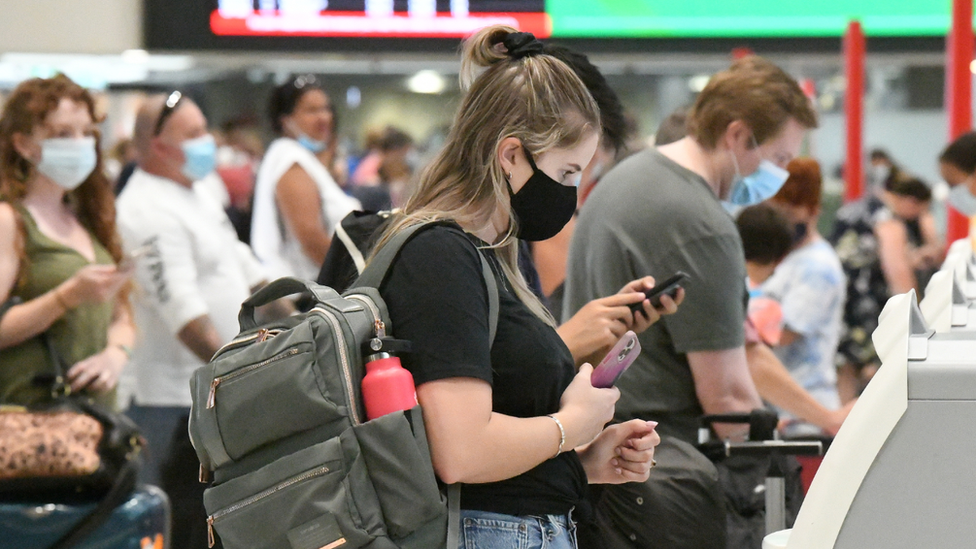
Brisbane Airport on Monday was bustling as people flew out of the city prior to its lockdown
Ms Palaszczuk noted the impact of the sudden lockdown on businesses, but said "the consequences of not acting are far worse".
"You only have to see what is happening around the world," she said, referencing infections in France and the US. "We don't want to see that here."
The government began its vaccination programme in February, but fell 85% short of its delivery target for the end of March.

Vaccine rollout controversy builds

The numbers have told Australia's Covid-19 relative success story clearly: fewer than 1,000 deaths and 30,000 cases since the pandemic began. That's a fraction of the figures in most EU nations or the US.
Yet the numbers are telling the opposite story when it comes to Australia's vaccine rollout.
Just 700,000 doses of a four million target delivered by April. It's hard to see how the government will fulfil a promised six million inoculations by May.
There's been a great deal of mixed messages and lack of transparency. While the federal government insists that all is going smoothly, it has accused the states of "sitting on the vaccines" and not distributing them.
State governments have fought back, raising concerns about future supplies. The whole issue has been jolted into urgency by Brisbane's outbreak, with questions over why two health workers in the latest clusters had not been vaccinated.
While politicians have played the blame game, it's the GPs on the frontline who have been most frustrated with the slow and sporadic rollout.
"We were told we cannot order any more vaccine than our allocation of 100 per fortnight, for the next twelve weeks," said Anna Davidson, the director of a GP clinic in New South Wales, in an ABC interview. "It'll take us eight years to vaccinate our own patients at this rate."

The lockdown lifted at midday on Thursday (02:00 GMT). It affected the Greater Brisbane region - which includes the councils of Brisbane, Logan, Moreton Bay, Ipswich and Redlands.
Brisbane's clusters have been linked to a nurse and a doctor who contracted the virus from a Covid ward at the Princess Alexandra Hospital. It then spread among their friends and family.
The virus has also spread to Byron Bay, a popular tourist town in neighbouring New South Wales.
Authorities have cancelled a major music festival, Bluesfest, which was set to run this weekend, after detecting an infection in the local community.
Lockdowns have hit Australia's domestic tourism industry particularly hit hard, with states often shutting their borders to people from declared hotspots. Queensland's economy is heavily reliant on tourism.
The recent shutdown did not affect popular spots such as the Gold Coast and Cairns. Ms Palaszczuk said both cities had seen more airport arrivals this week than at any time since the pandemic began.

More on Covid in Australia:
I cycled every street allowed under Melbourne’s tough lockdown
On Thursday, Qantas also reported selling 100,000 flights in the first day of a government-subsidised scheme that is giving Australians cheaper airfares to certain destinations.
Prior to this outbreak, Queensland had seen very few locally acquired cases since Australia's first wave of the virus a year ago. In January, the city shut down for three days due to a single case.
But the recent Brisbane cases mark the first cluster of community transmission in Australia in about a month.
Australia has reported 909 deaths and about 29,300 cases in total - a number far lower than many nations.
Australia has so far administered about 700,000 vaccines for a population of 25 million.
Related topics
- Published31 March 2021
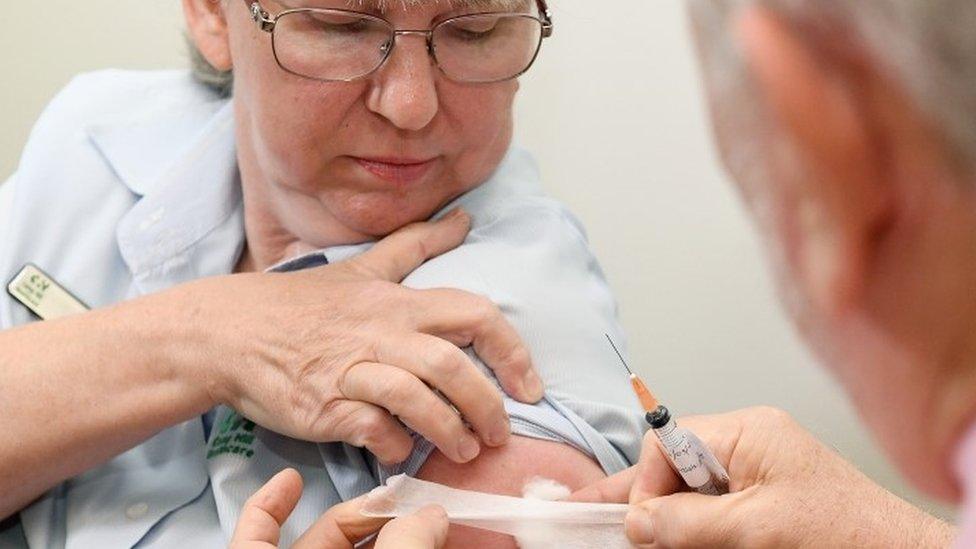
- Published29 March 2021
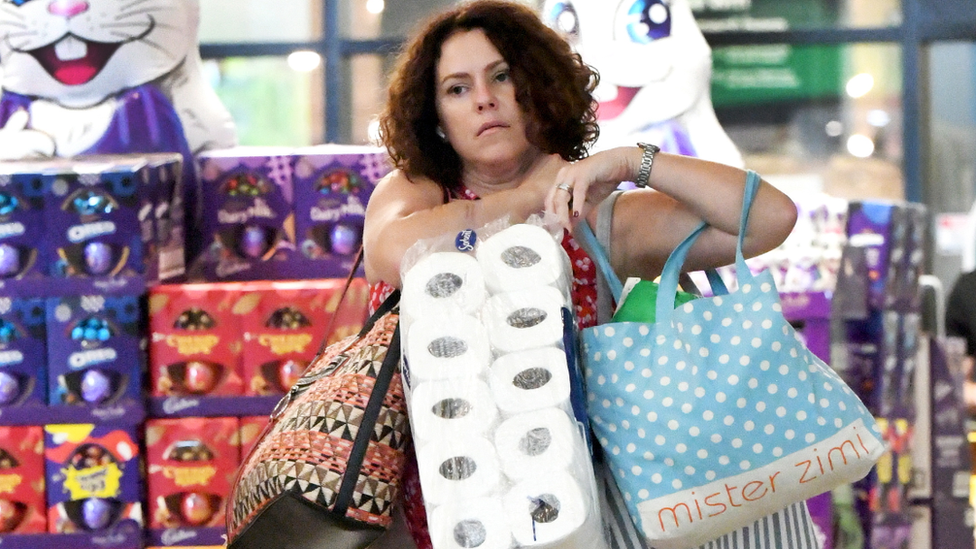
- Published11 March 2021
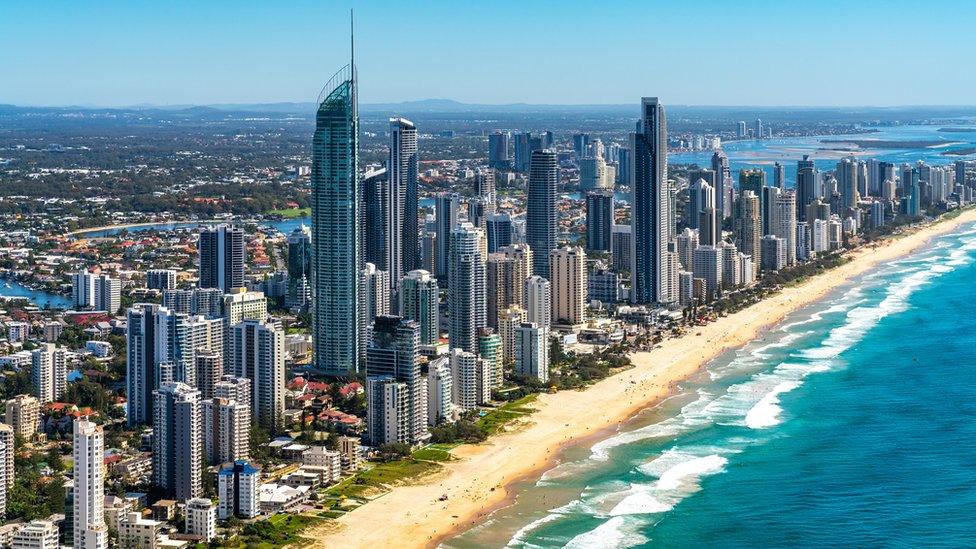
- Published8 February 2021
